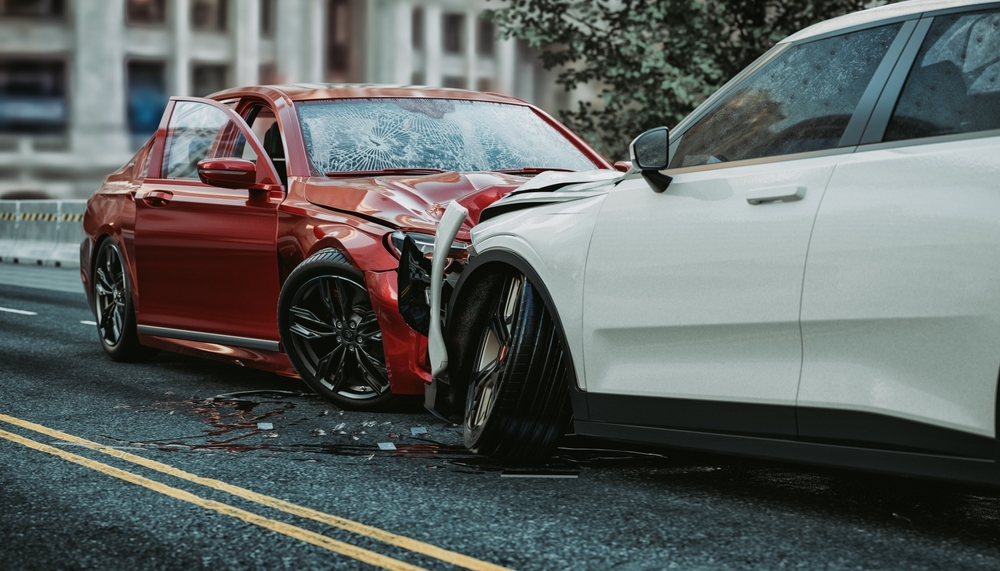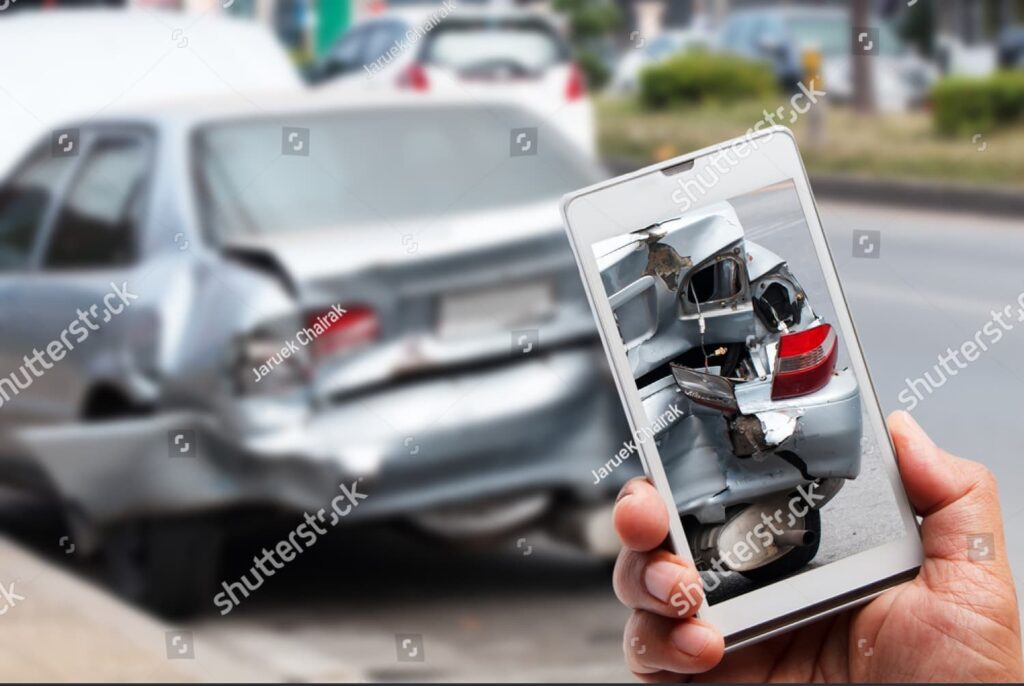The emergency lights have faded, but it’s time to act. After a car wreck in Texas, you may have a case for compensation. What you do after a car accident can sway the outcome of your claim, and it all starts with taking decisive, informed action. A personal injury lawyer can guide you through the process.
Preserve Evidence To Strengthen Your Case
The evidence from the car accident forms the backbone of your claim. While you’re no longer at the scene, the information you gathered and your memories are powerful tools. An Car Accident attorney uses this initial evidence to start building a winning strategy.
Write down a detailed account of the accident. Document everything you recall, from the moments before the wreck to your conversation with the other driver after the fact. No details are too small. Note things like traffic flow impact, road conditions, and what you saw the other driver doing.
Gather your digital files, including photos of the damaged vehicles and visible injuries like bruises or cuts. Create a separate folder for these files and back it up to a secure location.
Obtain the Official Police Report

If law enforcement came to your accident, they created a report. This document contains vital information, including the officer’s initial assessment of fault, a diagram of the scene, and witness information.
You can get the report online or request a copy from the local department that responded to your crash. A personal injury lawyer analyzes a police report for details that support your case.
Notify Your Insurance Provider
You need to inform your own insurance company about the crash. Your policy likely contains a clause that requires you to report any accident. Contact them and provide the basic facts: the date, the time, the location, and the other driver’s information.
You’re not required to give a lengthy, recorded statement to your own insurer right away. You have a right to gather your thoughts and consult an attorney first. Keep your initial report brief and factual.
What To Do About Your Damaged Car After an Accident
Any damage to your vehicle is a significant and visible part of your case. Navigating the inspection, estimates, and repair process protects the value of your property damage claim.
Your vehicle is a key piece of evidence. Avoid washing it or getting it repaired until the at-fault driver’s insurance company has had a chance to send an appraiser to inspect it. This preserves the evidence of the impact.
Keep a detailed file of all expenses related to your car’s damage, including:
- Towing and Storage: Save the receipts from any towing service or storage yard where your car was held.
- Rental Car Costs: Document every dollar you spend on a rental vehicle while your car is unusable.
- Personal Property: Make a list of any personal items inside your car that were damaged or destroyed, such as a laptop or a car seat.
An insurance company may pressure you to use one of its preferred repair shops. You have the right to choose your own mechanic for an estimate and for the final repairs. An independent estimate provides a more accurate view of the repair costs, which a lawyer can use to fight for a fair payment.
Documenting Your Injuries and Medical Journey
Your health and recovery are paramount. Diligently tracking your injuries and following your medical team’s advice aids your healing and creates the documentation to prove your claim. Your attorney uses these records to demonstrate the true extent of your suffering to an insurance company.
Maintain a daily pain journal to record your physical feelings, emotional state, and the ways your injuries affect your life. Note your pain levels, medication side effects, and any activities you can no longer perform, from household chores to hobbies.
Adhere strictly to your doctor’s treatment plan. Attend every scheduled doctor’s visit, physical therapy session, and follow-up appointment. A failure to follow medical advice can be used by an insurance company to argue that you weren’t truly hurt or that you made your injuries worse.
Carefully organize all your medical paperwork. Create a file for every bill from hospitals, clinics, and doctors. Include receipts for prescriptions, medical devices like crutches, and even mileage to and from your appointments.
How To Handle Communications With Insurance Adjusters
The at-fault driver’s insurance adjuster will likely contact you within days of the accident. It’s their job to settle your claim for the smallest amount possible.
Adjusters use specific tactics to devalue your claim. They may act friendly to build a false sense of trust, then ask leading questions to get you to admit partial fault. They’re looking for any statement they can twist to their advantage.
An attorney becomes a shield, managing all contact with the insurance company so you don’t have to. Your lawyer knows what to say and, more importantly, what not to say.
Keep the conversation brief if you must speak with an adjuster before hiring a lawyer. You can confirm basic, factual information. Politely decline any request for a recorded statement and direct them to your lawyer.
Understanding the Value of Your Car Accident Claim
The value of your claim is based on all the losses you suffered because of the wreck. known as losses or damages in car accident, cover every way the crash has affected your life, from your finances to your well-being.

Common examples include:
- Medical Expenses: This covers every past and future medical cost, from the initial ambulance ride and hospital stay to future surgeries, physical therapy, and prescription medications.
- Lost Wages and Earning Capacity: This compensates you for the income you lost while out of work recovering, and for the future loss of income if your injuries prevent you from returning to your job.
- Property Damage: This payment covers the cost to repair your vehicle to its pre-accident condition or, if it is a total loss, the payment for its fair market value. Costs for a rental car may be included, too.
- Pain and Suffering: This compensates you for the actual physical pain, discomfort, and nerve damage you have endured because of the injuries from the crash.
- Mental Anguish: This compensation addresses the emotional and psychological trauma resulting from the accident, which includes conditions like anxiety, depression, fear, and post-traumatic stress disorder (PTSD).
- Physical Impairment: This compensates for the loss of your ability to perform daily activities, from routine household tasks to hobbies and recreational activities you once enjoyed.
Accurately calculating these damages is a complex task. While billing statements show your past financial losses, projecting the cost of your future needs requires professional analysis.
A lawyer knows how to build a case that proves the full value of every damage category. They work with medical and financial experts to document future costs and use legal precedent to place a fair value on your personal suffering.
How a Lawyer Helps With Your Car Accident Claim
The wreck was bad enough. You don’t need to worry about legal deadlines, confusing laws, and dealing with insurance companies after a car accident. A lawyer acts as your advocate, guiding you through the claims process and protecting your rights.
Managing All Communications
Your attorney becomes your voice. They handle all phone calls, emails, and letters from the insurance companies and the other driver’s legal team. Their advocacy lets you focus on your recovery without the stress of constant and difficult conversations.
Building a Powerful Case

Your attorney will launch a full investigation into your accident. They collect every piece of evidence, from police reports and witness testimony to traffic light sequences and cell phone records. They weave this evidence into a compelling narrative that proves the other driver’s fault.
Engaging Experts
Attorneys have networks of trusted professionals that they use to help bolster claims. They can consult with accident reconstructionists to prove how the crash occurred.
Your lawyer may work with medical experts to create life care plans that detail your future treatment needs and with financial experts to calculate your total lost earning capacity.
Negotiating for Maximum Compensation
Seasoned personal injury lawyers are skilled negotiators. They present a detailed demand package to the insurance company and argue aggressively for a settlement that covers all your past, present, and future damages.
Representing You in Court
While most cases settle during negotiations, some require a trial. If the insurance company refuses to be fair, your lawyer can file a lawsuit and take your fight to a judge and jury. They’ll stand up for your rights in a Texas courtroom.
FAQ for What To Do After a Car Accident
What if I Was Partially at Fault for the Car Crash?
In Texas, you may still recover compensation even if you share some of the blame. The state follows a proportionate responsibility rule. This means you can file a claim as long as your share of fault is not 51% or more. Your final car accident settlement would then be reduced by your percentage of fault.
Determining fault percentages is complex and heavily disputed. The other driver’s insurance company will try to place as much blame on you as possible to reduce their payout.
An attorney investigates the crash independently to build a case that minimizes your fault and proves the other driver was primarily responsible.
How Long Do I Have to File a Claim After a Car Accident in Texas?
Texas has a time limit, known as the statute of limitations, for filing a personal injury lawsuit: You have two years from the car accident to file your case in court. If you fail to file within this two-year window, the court will likely dismiss your case, and you’ll lose your right to seek compensation.
There are some exceptions to this deadline, so contact a personal injury lawyer immediately to protect your claim.
What Information Do I Need To Collect After a Car Crash in Texas?
You need to collect as much information as possible to support your claim, including the other driver’s full name, address, phone number, and their insurance company’s name and policy number. Most of this information should be on the official police report.
It’s also very helpful to have the contact information for any witnesses, along with your own photos and videos of the scene and vehicle damage. An attorney uses this information as the starting point for their investigation.
What Do I DoAfter a Car Accident if the At-Fault Driver Has No Insurance or Not Enough?
If the person who hit you has no insurance, you can make a claim through the Uninsured Motorist (UM) coverage on your own auto policy, if you have it. If their policy limits are too low to cover all your damages, you use your Underinsured Motorist (UIM) coverage.
Filing a UM/UIM claim sometimes turns your insurance company into an opponent. Their goal is the same as any other insurer: to pay out as little as possible. An attorney can value your case and demand fair compensation from your own insurance company.
Should I Accept the First Settlement Offer After a Car Crash?
Accepting the first settlement offer from an insurance company is almost never in your best interest. The initial offer is a tactic used to close the case quickly and cheaply.
Initial offers are typically low and fail to account for the full scope of your damages, especially potential future medical expenses, lost wages, and pain and suffering.
Take Control of Your Future

Taking deliberate, informed steps now helps secure your physical and financial recovery. Having a strong advocate in your corner makes all the difference. Let the dedicated team at Ryan Orsatti Law handle the legal burdens while you heal.
Call us today for a confidential consultation at (210) 525-1200.
